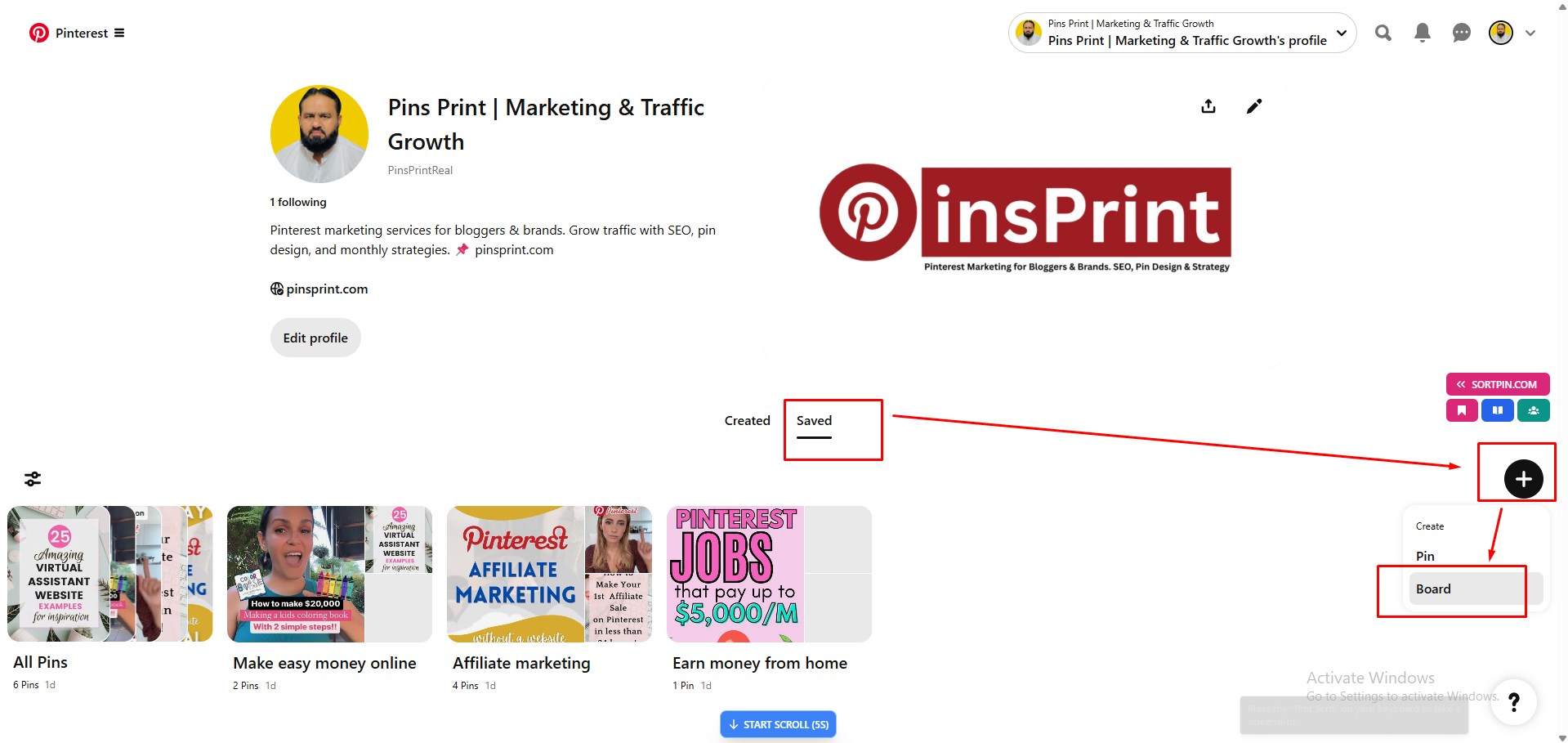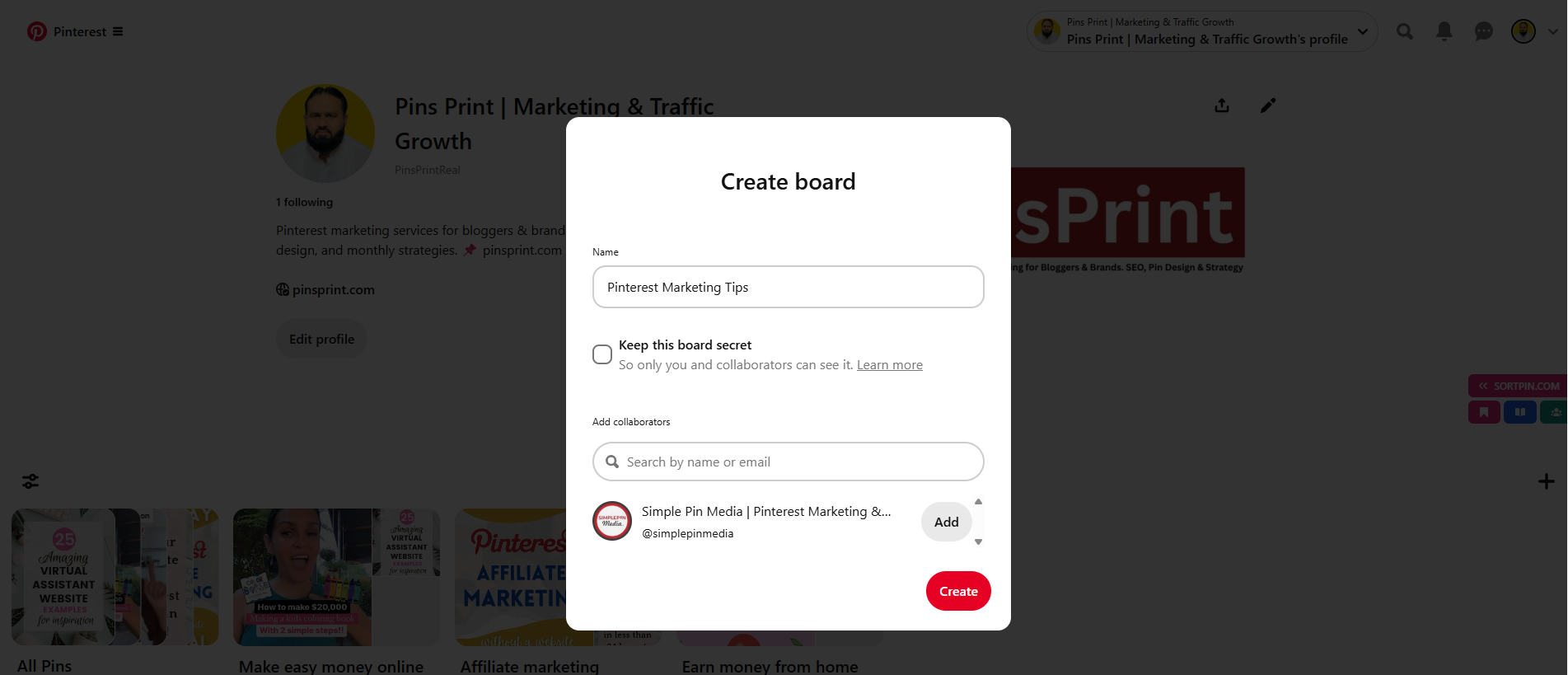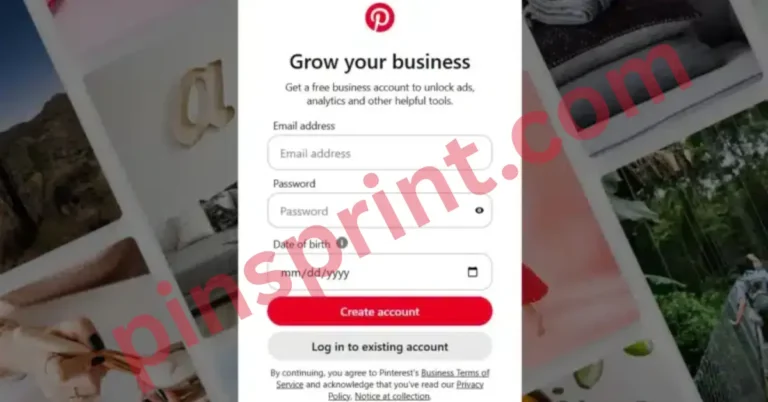What Are Boards & How to Use Them on Pinterest For Beginners
Confused about Pinterest boards? Learn what boards are and how to use them effectively to organize your pins, boost visibility, and drive more traffic in 2025. This Pinterest For Beginners guide breaks it all down.
🌟 Introduction
Let’s face it: Pinterest can feel overwhelming when you’re just starting out. You’re saving pin after pin—recipes, outfits, marketing tips—but suddenly, everything’s jumbled, and you can’t find that brilliant post you saw yesterday. Enter: Pinterest boards.
Think of boards as your digital folders, a visual way to organize your ideas and present them to the world (or just keep them for yourself). But beyond neatness, boards are essential tools for Pinterest growth, traffic, and SEO.
In this guide, I’ll walk you through what Pinterest boards are, how to use them, and how to make them work harder for your blog, brand, or business. Whether you’re new to Pinterest or refining your strategy in 2025, this is your go-to guide to organizing your content like a pro.
🔹 1. What Are Pinterest Boards?
At their core, Pinterest boards are collections where you save or “pin” content—like blog posts, images, videos, and even product links.
Each board is usually based on a specific theme or topic. For example, if you’re a food blogger, you might have separate boards for “Keto Recipes,” “Easy Weeknight Dinners,” and “Meal Prep Ideas.” This allows you to categorize your pins and help users find what they’re looking for.
There are three types of boards you can use:
-
Public boards: Anyone can see and follow these. They’re ideal for driving traffic and building brand awareness.
-
Secret boards: Only visible to you. Great for planning behind the scenes, like content calendars or personal projects.
-
Group boards: These allow multiple users to collaborate by pinning to the same board. Ideal for teams, collaborations, or shared niches.
To put it simply, boards are like folders on your desktop—but prettier and more powerful. And if you use them correctly, they can become one of your most valuable assets on Pinterest.
🔹 2. Why Pinterest Boards Matter for Growth
You might be wondering, “Can boards really make a difference?” The answer is a big yes!
Here’s why Pinterest boards matter:
✅ 1. They Keep You Organized
Boards help you keep your content neatly categorized. This improves not just your profile layout but your workflow too—especially when you’re managing multiple topics or campaigns.
✅ 2. They Boost Discoverability
Pinterest’s algorithm uses board titles and descriptions to understand what your content is about. The more relevant and well-optimized your boards are, the easier it is for your pins to show up in search results.
✅ 3. They Improve User Experience
A well-organized profile makes visitors stick around longer. If someone visits your account and sees clear, themed boards, they’re more likely to follow and engage with your content.
✅ 4. They Strengthen SEO
When you name boards using Pinterest SEO keywords, they act as indexable pages within Pinterest. Search engines like Google can also crawl your boards, giving you more visibility beyond the platform.
So don’t treat boards as an afterthought—they’re a key part of your Pinterest growth strategy.
🔹 3. How to Create a Pinterest Board (Step-by-Step)

Creating a board is easy—but optimizing it is where the magic happens. Follow this guide to get it right from the start:
🔧 Step-by-Step Instructions:
-
Log in to your Pinterest Business account.
-
Click on your profile photo, then the “+” icon.
-
Select Create Board.
-
Name your board using a relevant keyword (e.g., “Pinterest Tips for Bloggers”).
-
Add a description that explains what the board is about using natural language and keywords.
-
Choose a category (e.g., Education, Home Decor, Health).
-
Click Create.
Boom—you’ve just made your first board!
🎨 Extra Tip: Add a Custom Cover
Use Canva to design a branded cover for your board. A consistent aesthetic improves your brand recognition and makes your profile visually appealing.
Don’t forget to start adding pins to your new board right away, so it doesn’t look empty.
🔹 4. Best Practices for Organizing & Managing Boards
Once you’ve created a few boards, it’s time to manage them like a pro.
Here’s how to keep your Pinterest board strategy organized and effective:
📌 Create Niche-Specific Boards
Stick to your brand or niche. If you’re a finance blogger, don’t start a “Wedding Ideas” board unless it directly connects to your audience. Stay relevant and consistent.
📌 Reorder for Strategy
Put your most relevant boards at the top of your profile. This improves first impressions and helps users (and Pinterest) understand what your account is about.
📌 Use Sections
Within a board, you can create sections (like folders inside a folder). For example, inside “Budget Recipes,” you could have sections for “Dinner,” “Lunch,” and “Snacks.”
📌 Clean Regularly
Delete or archive underperforming boards or those that no longer align with your strategy. You want every board to support your goals—no clutter!
Staying organized helps Pinterest categorize your content more effectively, which means better reach and engagement.
🔹 5. Optimizing Boards for SEO

Pinterest SEO isn’t just about pins—boards play a major role too.
Here’s how to optimize your boards for search visibility:
🔍 Use Keywords Smartly
-
Board titles should include your main keyword (e.g., “Easy Pinterest Marketing Tips”).
-
The description should explain what’s inside and include 1–2 semantic keywords naturally.
-
Avoid keyword stuffing—keep it readable.
🔍 Pin with Relevance
Only add pins that fit the theme of the board. If the board is about “Email Marketing,” don’t add random blogging tips. This improves topical relevance.
🔍 Rich Descriptions
Write descriptions for each board and each pin. These help Pinterest index your content more accurately.
🔍 Link Boards Internally
Mention your other boards in pin descriptions when relevant (e.g., “Find more like this in my Pinterest SEO board”). This creates semantic linking.
Boards that are well-optimized act like mini landing pages on your profile. Treat them with the same care you’d give a blog post.
🔹 6. Using Group Boards vs Personal Boards
Group boards used to be the holy grail of Pinterest traffic—but things have changed. That said, they still have value when used wisely.
👫 What Are Group Boards?
These are boards where multiple users can pin content. You can join existing ones or invite collaborators to your own.
✅ Pros:
-
Exposure to a new audience
-
Great for collaboration and networking
-
Useful for community-building
❌ Cons:
-
Algorithm favors personal boards more for SEO
-
If the group board is spammy, it can hurt your reputation
-
Limited control over what others pin
🔍 How to Find Group Boards:
-
Use Pingroupie.com
-
Look at competitors’ profiles
-
Use Facebook groups to connect with board owners
Pro Tip: Only join active, well-managed group boards that match your niche.
🔹 7. How Boards Impact Pinterest Analytics
Your Pinterest Analytics dashboard offers key insights—not just on pins, but on boards too.
📈 Metrics to Monitor:
-
Impressions: How often your board content is shown
-
Saves: How many times people saved a pin from a board
-
Outbound clicks: Traffic driven to your website
📈 Why It Matters:
-
You can identify your top-performing boards and double down on content there.
-
Spot underperforming boards that need a refresh (or deletion).
-
Use insights to plan future content (e.g., more pins in high-interest categories).
Board analytics provide a strategic lens into your audience’s behavior. Don’t ignore them!
🔹 8. Creative Board Ideas for Bloggers, Brands & Creators
Running out of inspiration? Here are some Pinterest board ideas based on niche:
💼 For Bloggers:
-
Blogging Tips for Beginners
-
Pinterest Marketing for Bloggers
-
SEO Hacks & Tools
-
Content Calendar Templates
🛍️ For eCommerce:
-
Product Collections (e.g., “Summer Dresses 2025”)
-
Gift Guides by Season
-
Customer Favorites
-
Behind the Scenes: Making Our Products
🧘♀️ For Wellness Creators:
-
Morning Routines
-
Healthy Recipes
-
Self-Care Checklists
-
Guided Meditations
Boards can also support your content funnel. For example, if you’re promoting a freebie, create a board that supports that topic and pin related content to drive leads.
🏁 Conclusion
Now that you know what Pinterest boards are and how to use them, it’s time to get organized, optimize smartly, and grow your presence.
Boards are more than just visual folders—they’re strategic tools that help you structure content, boost visibility, and increase your brand’s reach on Pinterest. With clear naming, keyword-rich descriptions, and active pinning, your boards can become magnets for traffic.
Whether you’re a beginner or a seasoned pinner in 2025, one thing’s clear: your Pinterest success starts with your boards. So go ahead—clean them up, set them up, and pin with purpose! 🎯

2 Comments